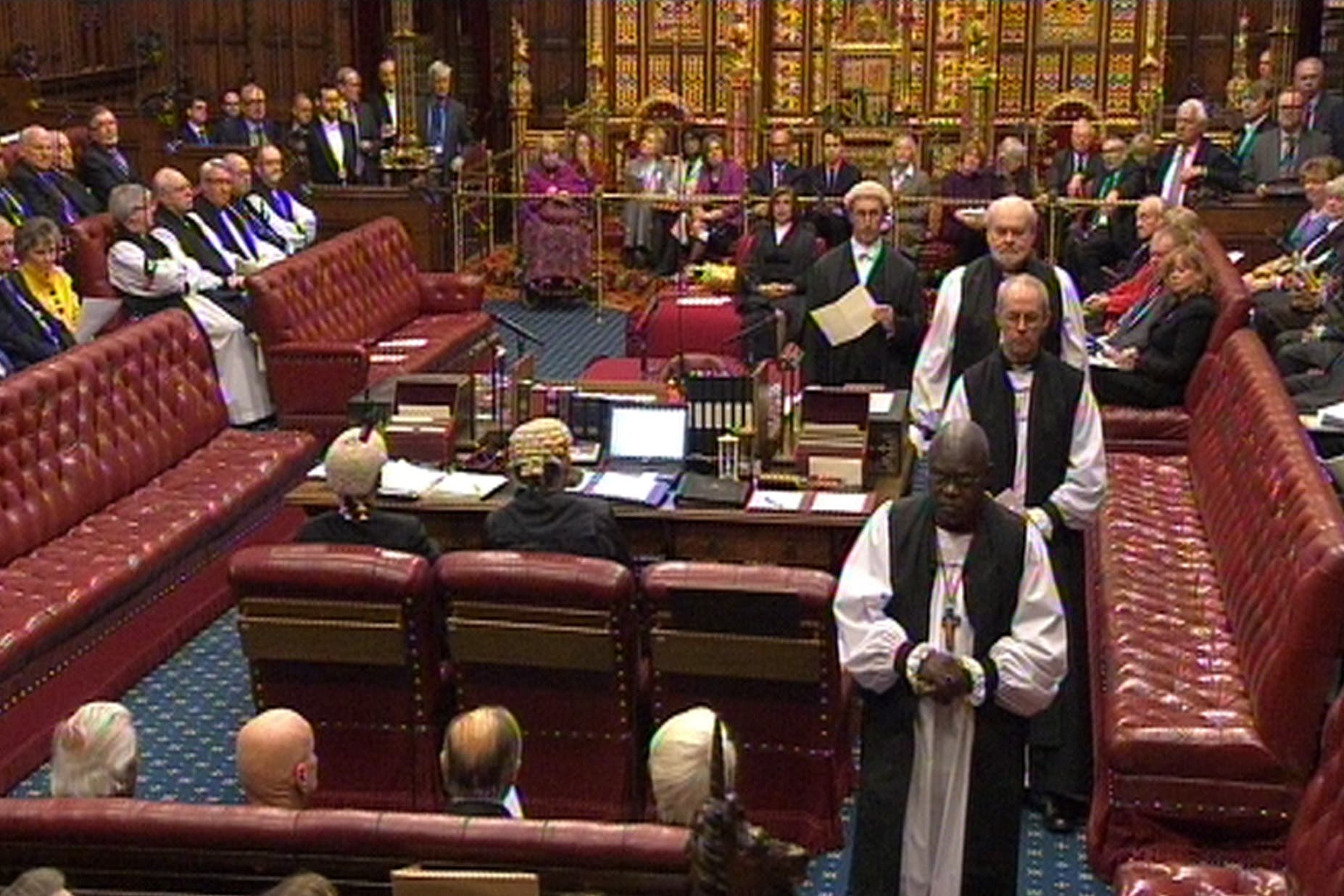Bishops’ automatic seats in House of Lords must be abolished, MPs tell Starmer
The second reading of the House of Lords Bill takes place on Tuesday

Your support helps us to tell the story
From reproductive rights to climate change to Big Tech, The Independent is on the ground when the story is developing. Whether it's investigating the financials of Elon Musk's pro-Trump PAC or producing our latest documentary, 'The A Word', which shines a light on the American women fighting for reproductive rights, we know how important it is to parse out the facts from the messaging.
At such a critical moment in US history, we need reporters on the ground. Your donation allows us to keep sending journalists to speak to both sides of the story.
The Independent is trusted by Americans across the entire political spectrum. And unlike many other quality news outlets, we choose not to lock Americans out of our reporting and analysis with paywalls. We believe quality journalism should be available to everyone, paid for by those who can afford it.
Your support makes all the difference.Sir Keir Starmer is under pressure to go further with reform of the House of Lords, with MPs calling for him to abolish bishops’ automatic seats in the chamber.
It comes as the House of Lords (Hereditary Peers) Bill moves a step closer to becoming law with its second reading in the Commons taking place on Tuesday.
The landmark legislation, introduced last month, will remove the right of the remaining 92 hereditary peers to sit and vote in the House of Lords and is the largest constitutional reform to parliament in a quarter of a century.
But Liberal Democrat MP Alistair Carmichael urged the government to go further, telling The Independent that removing bishops would “help build momentum for proper reform”.

Wera Hobhouse, Liberal Democrat MP for Bath, said further reform was necessary in order to end “centuries-old privilege”, lending support to “anything that makes the House of Lords more representative”.
Aside from Iran, the UK is the only legislature in the world where clerics are automatically guaranteed a place in the legislature.
The Lib Dems have argued for replacing the House of Lords with an elected Senate, with Mr Carmichael saying the abolition of hereditary peers is a “no-brainer”.
“It should not be controversial. We need a second chamber to carry out a revising function but which should be elected by proportional representation possibly for a limited number of terms.
“Getting rid of the [hereditary peers] is just a tweak and not some of the massive reform that it needs,” he added.
Asked whether she thinks the government should go further and abolish bishops’ automatic seats in the second chamber, Ms Hobhouse told The Independent: “Anything that makes the House of Lords more representative of people today is a good thing.
“We should ultimately be fully representative and, if we’re going to have bishops, we should have other faith leaders there as well.”
“Any reform towards ending centuries-old privilege must be a good thing.”
Sarah Olney, the Liberal Democrats’ cabinet office spokesperson, said the measures outlined in the bill are “long overdue”, telling The Independent: “We will continue to urge the government to go further on Lords reform, including by introducing the promised retirement age, and to give the Lords the proper elected legitimacy the second chamber should have.”
Removing the right of hereditary peers to sit and vote in the House of Lords is a “matter of principle” for the Labour government, cabinet office minister Nick Thomas-Symonds told the Commons on Tuesday.

Opening the second reading debate of the bill, Mr Thomas-Symonds said a person’s ancestry should not determine whether they have a place in the Lords.
He said: “It is a change that is long overdue. In the 21st century there should not be places in our parliament, making our laws, reserved for those born into certain families.
“In fact, we are one of only two countries that still retain that hereditary element in our legislatures, a clear sign the time has come to see through this long overdue change.”
The UK remains one of just two countries in the world with a hereditary element in its legislature.
The first steps to ending this were taken in 1999 when most hereditary peers lost their right to sit in the House of Lords.
Join our commenting forum
Join thought-provoking conversations, follow other Independent readers and see their replies
Comments